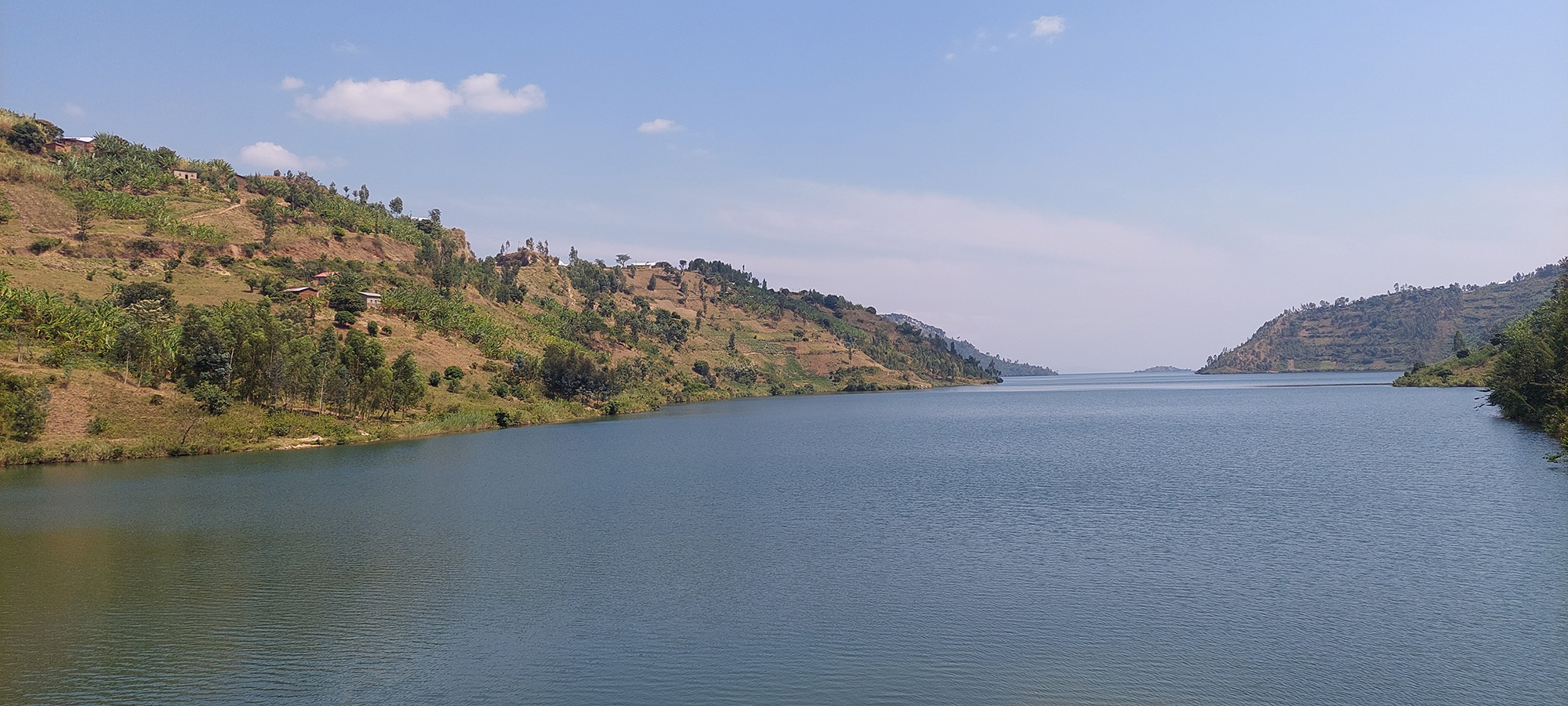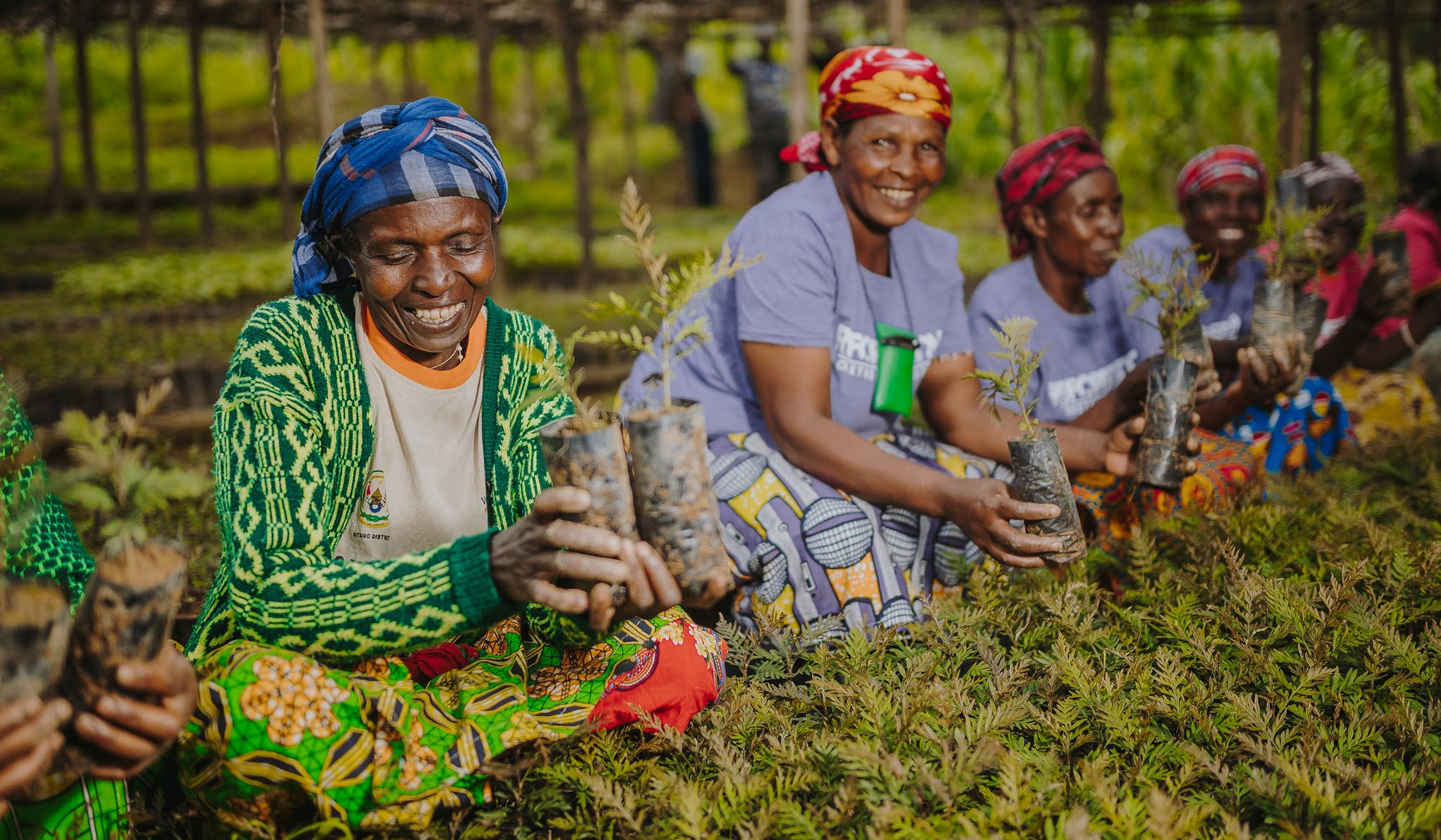Lake Kivu, located between Rwanda and the Democratic Republic of Congo, has been declared “Living Lakes Lake of the Year 2025” by the international Living Lakes Network and the Global Nature Fund (GNF). The nomination takes place on the newly created UN World Lake Day, which will be celebrated for the first time on 27th August 2025.
Since 2004, the international network Living Lakes and the environmental foundation Global Nature Fund have been drawing attention to endangered waters worldwide on World Water Day with an annual ‘Threatened Lake of the Year’ declaration. The ‘Living Lakes Lake of the Year’ nomination replaces this long-standing campaign and will in future draw attention every year to the central importance of lakes for the climate, biodiversity and people on UN World Lake Day.

Lake Kivu, located on the border between the Democratic Republic of Congo and Rwanda, is one of the oldest, most ecologically valuable and at the same time most endangered lakes in Africa.
With its extraordinary biodiversity, Lake Kivu is a biodiversity hotspot. While the lake itself hosts numerous endemic species of cichlid fish, the surrounding mountains are home to wetlands, forests, and rare animal species such as chimpanzees, forest elephants, forest antelopes, and the last remaining mountain gorillas in Africa. At the same time, it is vital for the survival of millions of people in the region – as a source of drinking water and essential for fishing, agriculture and other economic activities.
Despite its ecological and social importance, Lake Kivu faces significant threats:
- High concentrations of dissolved methane and carbon dioxide resulting from volcanic activity pose the risk of a so-called limnic eruption – a sudden release of gas with potentially catastrophic consequences.
- In addition, there is pollution from unsustainable agricultural, mining, industrial waste and untreated domestic sewage.
- Political conflicts in the region are hampering urgently needed environmental protection measures in many places.
- Climate change, invasive species and uncontrolled exploitation are threatening the ecological balance of the lake.

With the award ‘Living Lakes Lake of the Year 2025’, the international Living Lakes network not only recognizes the ecological importance of Lake Kivu, but also the positive approaches that are already contributing to its protection and restoration. Particularly noteworthy are the initiatives of the Albertine Rift Conservation Society (ARCOS), a partner in GNF’s Living Lakes Biodiversity and Climate Project (LLBCP), and the Lake Kivu and Rusizi Basin Collaborative Partnership (LKRB-CP).
Activities include:
- Biodiversity protection through monitoring and protective measures for fish stocks and water quality.
- Renaturation of riparian zones and wetlands to restore natural habitats.
- Involvement and empowerment of local communities, especially youth and women’s groups, in environmental education and sustainable use concepts.
- Protection programmes for endangered species and the promotion of cross-border cooperation.
“By declaring it a Living Lakes Lake of the Year, we want to not only highlight threats, but also give hope and inspiration”, says Udo Gattenlöhner, Managing Director Global Nature Fund. “Lake Kivu impressively demonstrates the potential of local initiative and international partnership for water protection.” The award thus recognizes not only the ecological importance of the lake, but also the concrete efforts made locally – and exemplifies the need to protect ecosystems worldwide.

